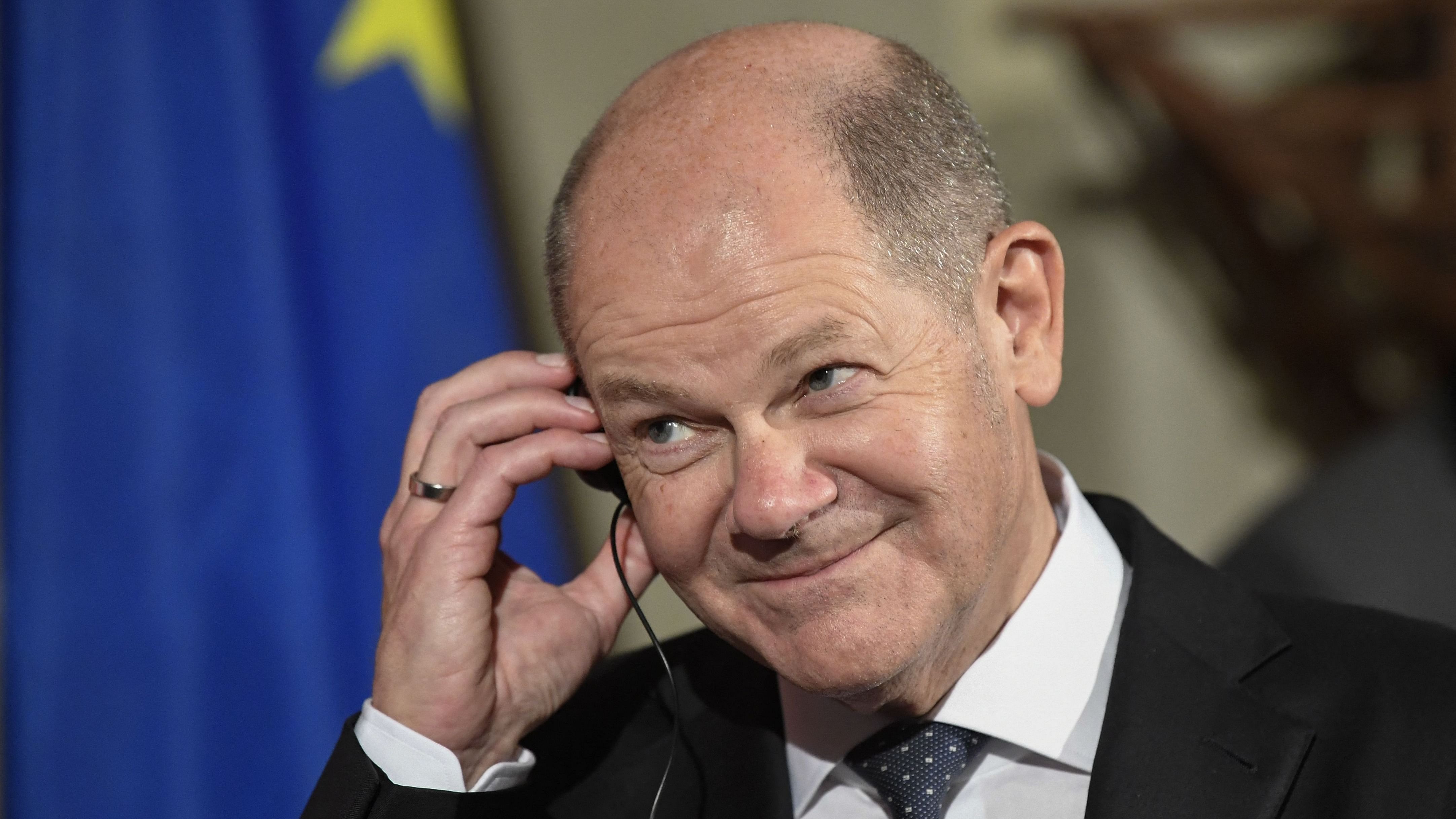
German Chancellor Olaf Scholz will pay a State visit to India on February 25 and 26, his first trip to the country more than a year after he took charge of the top post.
Announcing the German chancellor's visit, the Ministry of External Affairs (MEA) said on Monday that Scholz will be accompanied by senior officials and a high-powered business delegation.
He is scheduled to arrive in Delhi on February 25 and will proceed to Bengaluru on February 26, the MEA said.
It added that Prime Minister Narendra Modi and Chancellor Scholz will hold discussions on bilateral, regional and global issues.
"Chancellor Scholz's visit will enable both sides to take stock and progress on the key outcomes of the 6th IGC, strengthen security and defence cooperation, work towards closer economic ties, enhance opportunity for mobility of talent and give strategic guidance to ongoing collaboration in science and technology," the MEA said.
Modi and Scholz will also interact with CEOs and business leaders from both sides.
"This is the first standalone visit of a German Chancellor to India since the biennial Inter-Governmental Consultation (IGC) mechanism commenced in 2011, which is a whole-of-government framework under which ministers from both countries hold discussions in their respective areas of responsibility and report on the outcome of discussions to the Prime Minister and Chancellor," the MEA said in a statement.
It said Scholz will be accorded a ceremonial welcome at the forecourt of the Rashtrapati Bhawan.
He will also call on President Droupadi Murmu.
Ahead of his visit to India, the German chancellor, at the Munich Security Conference, broadly echoed External Affairs Minister S Jaishankar's comments made last year relating to the "European mindset".
"This quote from the Indian foreign minister is included in this year's Munich Security Report and he has a point," Scholz said.
He said it would not be Europe's problem alone if the "law of the strong were to assert itself in international relations".
At an event in Slovakia in June last year, Jaishankar was severely critical of the "European mindset" and said Europe has to "grow out of the mindset that Europe's problems are the world's problems, but the world's problems are not Europe's problems".
The external affairs minister had made the remarks while responding to a question on India's position on the Russia-Ukraine war.